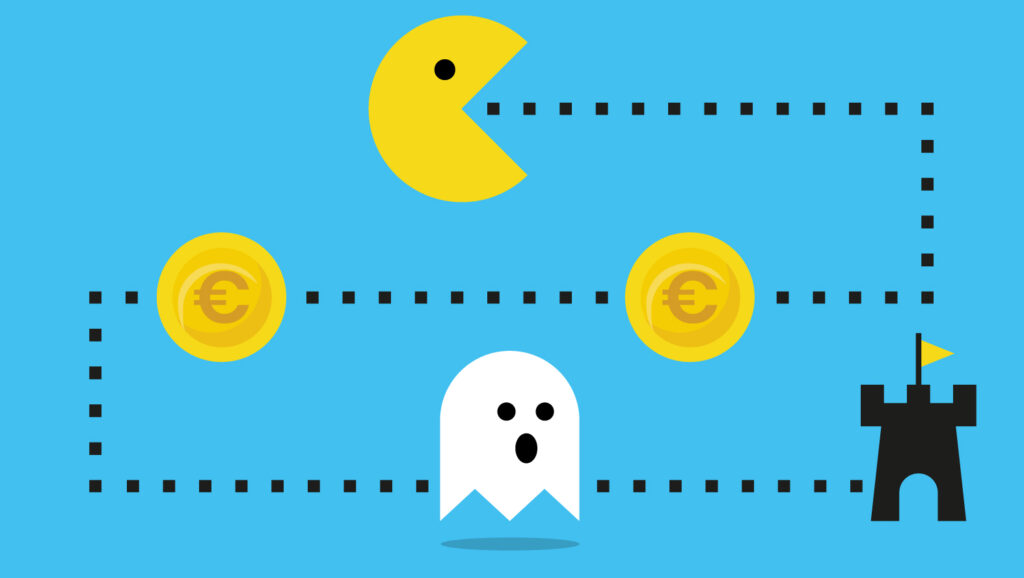
In the ever-evolving landscape of the consumer market, catering to the preferences of different generations is key to success. Generation Z (Gen Z) is quickly establishing itself as a pivotal, if not the most significant, consumer demographic. Marketers are now faced with the task of targeting this generation of consumers, who possess arguably the most diverse range of values, preferences, and behaviours of any generation before them. Winning the loyalty of Gen Z consumers is therefore paramount.
Not to be confused with Millennials, Gen Zs are the generation born between 1997 and 2012, succeeding Millennials. Gen Z are a generation that have grown up as consumers with the backdrop of economic turmoil, health crises, political uncertainties, and environmental shifts. In the impending future, Gen Z will assume the mantle of the largest customer demographic. This imminent shift underscores the critical need for companies to understand Gen Z consumer expectations.
Loyalty programs are a great way to address and tailor to Generation Zs and their expectations, however, to truly understand what the Gen Z consumer expects, it is critical to understand who they are, how they shop, and what shapes them.
The Gen Z Consumer
Gen Z has exhibited several distinctive characteristics when it comes to consumerism and personality traits. Their experiences have molded them into consumers who approach the market with a unique blend of pragmatism and idealism, driving them to seek brands that resonate with their values and aspirations. Some traits that are typical of Gen Z-ers include the following:
Digital Natives
Gen Z is the first generation to grow up entirely in the digital age. Surrounded by smartphones, social media, and instant access to information, their consumer behaviour is influenced by their comfort with online research, reviews, and e-commerce.
Generation Z has seamlessly embraced online shopping as a perpetual choice. Unlike their predecessors, they didn’t encounter the need to acclimate to a new way to shop. Online shopping has ingrained itself as their default mode, and this trend is poised to persist for successive generation.

Preference for Authenticity
Authenticity and transparency matter to Gen Z. They support brands that align with their values and demonstrate genuine commitment to social and environmental issues.
This generation, characterised by their innate scepticism and digital savviness, values openness and honesty above all else. They are quick to discern when a brand is being disingenuous or attempting to manipulate them.
Minimalism and Sustainability
Minimalistic and sustainable lifestyles are valued by many Gen Z individuals. Their awareness of environmental impact drives them to support brands with eco-friendly practices and products, fostering a strong connection between their values and consumption habits.
Moreover, a 2020 report conducted by First Insight found that 73% of Gen Z consumers are willing to pay extra for products that are sustainable and environmentally friendly, highlighting their strong commitment to responsible consumption.

Individuality and Personalisation
Gen Z values self-expression and individuality. They seek personalised shopping experiences and products that resonate with their unique tastes and preferences, leading to increased demand for customisable and personalised options.
Frugality and Financial Pragmatism
Growing up in uncertain economic times, Gen Z is financially pragmatic. They are adept at comparing prices, seeking discounts, and seeking value in their purchases, making them discerning consumers.
Entrepreneurial Spirit
Many Gen Z individuals possess an entrepreneurial mindset. They actively create their income streams through freelancing, side gigs, and even starting their own businesses, influencing how they view traditional consumer roles.

Socially Conscious Consumers
Social justice and equality matter deeply to Gen Z. They support brands that demonstrate diversity and inclusivity in advertising and practices. Their purchasing power becomes a tool for advocating causes they believe in.
Privacy Trade-off
Amid the surge in digital connectivity during the pandemic, data privacy apprehensions escalated across generations. Notably, Gen Z emerged as the most cautious demographic, valuing their privacy.
The pivotal factor lies in retailers’ transparency about data collection, usage, and security for Gen Zs to trust companies. In the competitive landscape, winning Gen Z’s trust is paramount. As their influence grows, companies must work diligently to cultivate seamless customer experiences while maintaining robust data security practices to secure lasting loyalty and business.
Unwavering Independence in Consumer Choices
Arguably one of the most important characteristics of this generation is Gen Z’s distinct shopping habits. A report by the OliverWyman Forum found that whilst 30% of US and UK Gen Z-ers indicated a tendency to stick with their favoured brand for a new purchase, a significant 62% displayed a contrary inclination. This 62% stated expressed a readiness to explore alternative options, even if they hold a favoured brand in high regard. Moreover, among those with a preferred brand, over 50% of Gen Z-ers demonstrated a willingness to switch allegiances for a more affordable or superior-quality option.
In essence, Gen Z refuses to be confined by brand loyalty norms.

So… How do you make a Loyalty Program for Gen Z?
With all these in mind, it may seem impossible to cater to Gen Z needs. As explored, Gen Z is a generation characterised by their distinctive consumer traits, from their seamless integration into the digital realm to their unwavering commitment to authenticity and social justice. However, it is possible to cater to all these in your loyalty program.
Here are key steps that marketers can take to create an effective loyalty program tailored to Gen Z:
Tailored Benefits for your Gen Z members in your Loyalty Program
Gen Z places high importance on personalised experiences and meaningful connections. Conventional loyalty programs often fall short in capturing their attention due to a perceived lack of value.
To tackle this challenge, brands should craft loyalty programs that provide tangible and instant advantages that go beyond mere points accumulation. Programs centered around engagement, such as rewarding social media interactions or reviews, have the potential to foster a deeper emotional bond. By prioritising engagement within the loyalty journey, brands can establish a true value exchange that extends beyond the transaction, ultimately enhancing customer loyalty.
Incorporate Authentic Social Values
Gen Z’s commitment to social values and causes is a defining characteristic. To align with this inclination, loyalty programs should go beyond discounts and rewards, integrating social impact initiatives. Offering the option to convert loyalty points into charitable donations resonates with Gen Z’s desire to contribute positively to society. Brands can also tailor loyalty programs to specific communities or identities within Gen Z, creating a sense of belonging and shared values. By doing so, loyalty programs become more than transactional tools—they become platforms for meaningful engagement.
Just as Gen Z challenges conventions, so too should loyalty programs evolve to meet their distinct needs and aspirations.
Brands embracing sustainability resonate deeply. Loyalty programs can champion this ethos, reinforcing environmental consciousness through rewards and initiatives. H&M’s loyalty program is a case in point, encouraging sustainable choices and recycling practices through a seamless integration of rewards.
The Power of Peer Influence: Harnessing Gen Z’s Social Network
Gen Z thrives on social connectivity and values peer recommendations. A shift from traditional influencer marketing to harnessing their social circles proves pivotal. Encouraging members to refer friends, share content, and engage in interactive activities ignites a vibrant community. Dropbox’s referral program exemplifies this approach, dually rewarding both referrers and new customers. A simple yet effective strategy, this dynamic creates a symbiotic relationship of trust, advocacy, and engagement.
By offering captivating incentives for friend referrals, brands tap into Gen Z’s inherent enthusiasm for networking. The strategy triggers organic word-of-mouth promotion, driving brand exposure through the power of authentic connections.

Embrace the Omnichannel Era for Gen Z success
Gen Z navigates a holistic retail landscape, embracing both digital and tangible experiences. Unlike Millennials, Gen Z seeks authenticity beyond convenience. The omnichannel approach emerges as the golden ticket, allowing seamless interaction across diverse touchpoints. To fortify engagement, loyalty programs must resonate across all channels, embracing app-based interactions for a unified journey. An illustrative move involves scanning QR codes in-store for real-time reward redemption, tapping into the immediacy Gen Z treasures.
Elevate Gen Z Loyalty Through Gamification and Digital Games
In the realm of Gen Z, gamification is a potent engagement tool. With 65% of Gen Z spending on virtual in-game items, gaming elements within loyalty programs capture their attention. Transforming loyalty engagement into a playful endeavour fosters consistent interactions and frequent transactions. The allure of gamification lies in its community-building aspect, enhancing data collection and interaction dynamics.
Given Gen Z’s affinity for emerging tech trends, incorporating elements such as NFTs, tokenisation and digital badges could prove enticing and innovative within loyalty programs. Gen Z’s familiarity with these cutting-edge concepts creates a unique opportunity for brands to captivate their attention. Leveraging badges, tokenisation, or NFTs could add an extra layer of excitement, aligning loyalty programs with Gen Z’s tech-savvy mindset.
Digital games too, have become an integral part of Gen Z’s lifestyle, with mobile gaming and interactive experiences shaping their leisure time. Incorporating digital games into loyalty programs takes engagement to the next level. Brands can create loyalty-based mobile games or interactive challenges that align with their offerings. These games not only tap into Gen Z’s gaming affinity but also provide an immersive way to earn rewards, reinforcing their commitment to the brand. This synergy between loyalty programs and digital games provides an avenue for brands to connect authentically, fostering a sense of excitement and camaraderie that resonates deeply with this generation.

Personalisation and Privacy
As previously stated, Gen Z’s affinity for personalised experiences underscores the importance of targeted offers. However, privacy is paramount. While 75% of Gen Z is open to sharing information for personalised experiences, safeguarding customer data remains vital for building trust.
Striking a delicate balance between personalisation and data security is essential to ensure that Gen Z’s willingness to engage translates into a lasting and meaningful relationship with the brand. A loyalty program needs to consider this for their Gen Z consumers.
Conclusion and Next Steps
In the dynamic landscape of consumer preferences, understanding and adapting to different generations is pivotal for business success. Generation Z, emerging as a dominant consumer force, carries a unique blend of values and behaviours. As the future market leaders, it’s essential for brands to grasp the intricacies of Gen Z’s mindset and reshape their strategies accordingly.
Crafting a loyalty program tailored to Gen Z’s distinct characteristics is an essential step. In crafting a loyalty program for Gen Z, brands must weave the likes of personalisation, gamification, sustainability, and seamless omnichannel experiences into the fabric of engagement. By doing so, they unlock the power of this dynamic generation’s brand loyalty, advocacy, and meaningful connections.
This tailored approach not only fosters loyalty but also signifies a brand’s commitment to innovation, authenticity, and meaningful engagement in the eyes of this vibrant generation.

